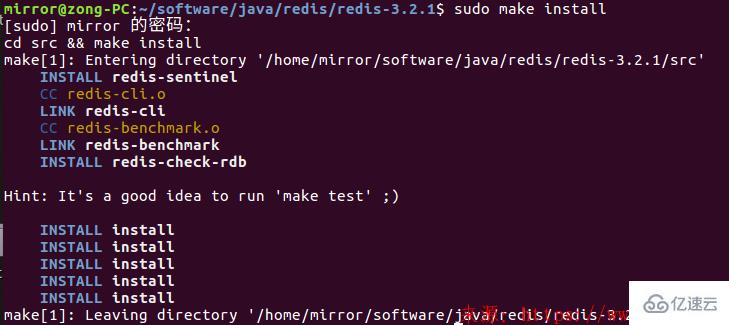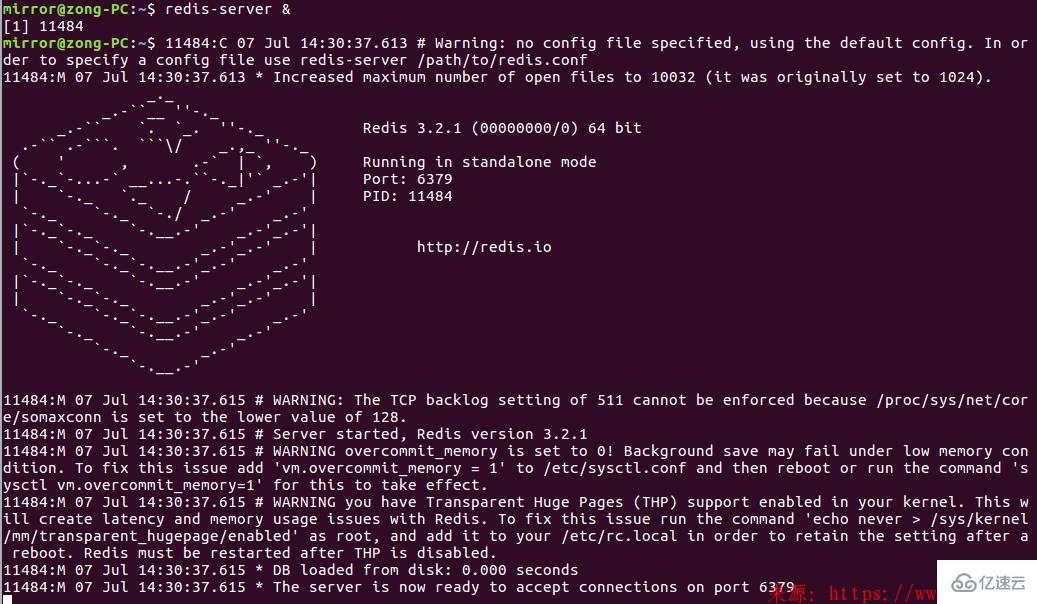Redis is an open source remote dictionary service written in ANSI c language and provides APIs in multiple languages.
1 Download the Redis installation package
Go to the redis official website to download the reids installation package. The redis official website only provides Linux installation packages by default, so you don’t have to worry about downloading the windows installation package. The author downloaded redis-3.2.1.tar.gz. The downloaded is the redis source code. You should use the source code installation method to install redis.
二 Install redis
\1. Unzip: tar - zxvf redis-3.2.1.tar.gz

\2. Enter the decompressed directory and perform the compilation operation: make test

\3. After the compilation test is completed, the following message appears, proving that there is no problem: the compilation command is placed in the src directory

\4. Compilation successful After that, perform the install operation: sudo make install

\5. At present, redis has been installed successfully. The related commands of redis are stored in ../redis-3.2.1 /src directory, and the following files are generated in the /usr/local/bin/ directory:

Second redis uninstallation
\1. View Is reids running? If so, shut it down first

As can be seen from the picture, redis-server is currently running on port 6379
\2 . If the redis-server service is running in the background, you need to stop the redis-server service:
To stop the redis-server service normally, use the reids client command: redis-cli shutdown

If it cannot be stopped, kill the process: kill -9 PID





Shutdown command: redis-cli -p 8080 shutdown
\3. Set up startup:
Four redis client client segment connections:
After redis is installed successfully, the redis-cli client will be generated, and you can connect to the local or remote redis server through the redis-cli command. The redis-cli command has many parameters. Commonly used options are -h -p -u -a, which correspond to ip address, port number, user name, and password. You can view the common options of redis-cli through redis-cli –help
\1. Connect to local redis Example:

\2. Connect to remote redis:

5 Shut down redis
\1. Normally shut down the local redis: redis-cli shutdown, the local 6379 redis is shut down by default

If it cannot be shut down normally, you can Shut down by killing the thread:

\2. Remotely shut down the redis server: redis-cli -h xxx.xxx.xxx.xxx -p xxxx -u xxxx -a xxxx shutdown
 Redis is somewhat similar to Memcached. It is a key-value storage system that supports relatively more stored value types.
Redis is somewhat similar to Memcached. It is a key-value storage system that supports relatively more stored value types.
Linux is a UNIX-like operating system that is free to use and spread freely. It is a POSIX-based multi-user, multi-task, multi-thread and multi-CPU operation. System, using Linux, can run major Unix tool software, applications and network protocols.
The above is the detailed content of How to install redis on Linux system. For more information, please follow other related articles on the PHP Chinese website!




